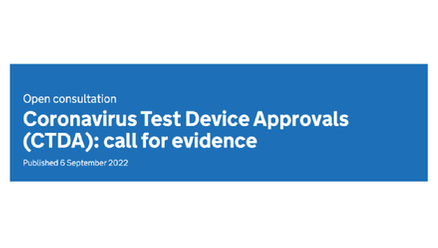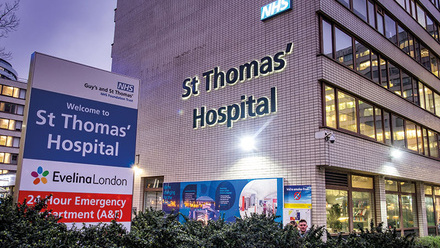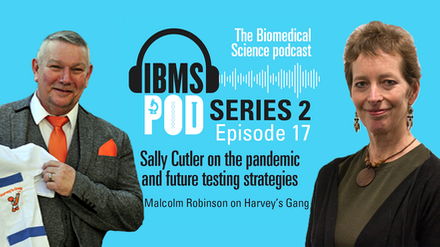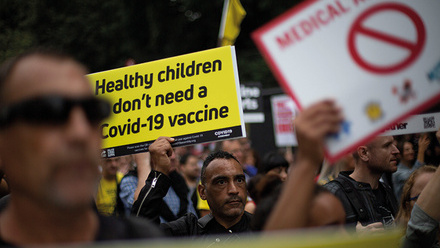Serology testing: planning for the exit strategy
Covid-19 Serology
On behalf of the biomedical scientists and laboratory staff of the NHS, the Institute of Biomedical Science (IBMS) aims to address and correct some of the misinformation around serology testing – as this will form a significant part of the exit strategy from the national lockdown.
There continues to be confusion around the role of the polymerase chain reaction (PCR) test for detecting those infected with COVID-19 and the serology (antibody) test to identify who has previously been infected with the virus.
What is the role of serology testing?
Serology tests detect antibodies in the blood. Antibodies are produced by the body’s immune system in response to a pathogen (e.g. virus). These antibodies are the immune systems’ ‘memory’ of that pathogen and, if well-developed, may prevent disease upon later infection, or reduce the severity of that disease if contracted again. Detection of these antibodies can therefore be used to identify if someone has been infected with a virus.
How does this differ from PCR testing?
PCR testing is used to identify if an individual has an active infection with the SARS-CoV-2 virus which causes COVID-19, by directly detecting the presence of the virus in the individual. These are the patients who could spread the infection to others.
The main role of serology testing will be to identify whether an individual has previously had COVID-19 but did not have obvious symptoms, or tested negative by PCR. Those people are expected to be at a lower risk of becoming infected and passing the virus on to others in future. The other advantage of testing for antibodies to the virus which causes COVID-19 is that the total number of people infected so far can be calculated. This can help inform those who are considering the best control measures over the next few months.
What are the limitations of serology testing?
Serology testing should be seen as complementary to testing for the virus which causes COVID-19. However, as with all pathology tests, there are limitations that must be considered when setting up a testing programme and interpreting the results.
Testing timeframes
It takes time for the immune system to develop detectable antibodies after an infection. The initial immune response produces a type of antibody called IgM. Although this is the body’s rapid ‘first response’ to an infection, it still takes 5-10 days before it can be found in blood samples. This is followed by the more long-lasting IgG antibody which peaks between 21-28 days after the onset of infection. Therefore, testing too early could result in a ‘false-negative’ result. The risk here is that an asymptomatic individual who was infectious could believe that they did not have COVID-19 disease and could spread the virus to others if given a ‘false-negative’ result when tested too early.
Longevity of COVID-19 antibodies and their ability to protect
There is no long-term data available on how long antibodies to the SARS-CoV-2 virus which causes COVID-19 will remain detectable in humans, as we have only been aware of this virus since December 2019. We are not able to determine how long this immune system ‘memory’ will last. However, there are reports of antibodies being present for individuals who recovered from SARS-CoV and MERS CoV for several years after infection and these are part of the coronavirus family that include SARS-CoV-2.
Even if individuals do produce antibodies that are detectable for months or years after COVID-19 infection there is no data to prove whether they will provide immunity and prevent reinfection with the virus. The type and concentration of antibody that must be present to provide immunity is a key factor and this data is not currently available. We must caution that this data will need time to be produced and cannot be gathered in a matter of days or weeks.
Of concern is that recent World Health Organisation (WHO) statements discussing a lack of data determining if antibodies will provide long term immunity to future COVID-19 infection have been misinterpreted, by some, as saying antibodies will not provide long term immunity. Unfortunately, we do not yet know, as the virus is so new.
Correct results?
No diagnostic test is correct 100% of the time. There will always be a percentage of patients who give false positive or false negative results. Early reports suggest that some tests on the market produce correct results 90% of the time. This means that 1 in 10 tests may potentially be wrong. Other test kits have shown much lower accuracy rates meaning that more results could be incorrect. When combined with testing in the wrong timeframe the outcome could be a large number of tests providing erroneous results.
Can NHS laboratories do large numbers of these tests?
Yes, but the number will depend upon the technology and assays developed to undertake the tests.
Diagnostic testing companies are developing tests which will be processed on high capacity analysers that exist in large numbers within NHS medical laboratories. As with the PCR testing, the limiting factor will likely be around the supply chain of reagents rather than the capacity of the NHS to perform the tests. As it is a blood sample there is less likely to be a constraint in taking the sample than there appears to have been in collecting the swab samples for PCR testing.
Future considerations
Public health bodies including Public Health England (PHE), the NHS and the Department for Health and Social Care are working to review the effectiveness of the COVID-19 serology tests being manufactured. This work must be completed thoroughly and not rushed. The goal of all biomedical scientists is to use tests that provide the highest levels of accuracy possible and deliver the most effective clinical outcomes.
The setting of serology testing needs to be carefully considered. Currently, there are two options being reviewed. One is the test performed in the laboratory, which requires the patient to have blood collected by a healthcare professional. The other is the point of care test (POCT) which only needs a finger prick of blood which can be performed at home.
A study by the National COVID Testing Scientific Advisory Panel has shown that a laboratory based test can provide good quality results 10 days from the onset of symptoms. The POCT test they trialed did not display effective performance for diagnosis of COVID-19 infection in individual patients. However, it could be good enough for general population screening, to get an approximate idea of the number of individuals who have been infected. The level of performance required from the tests used will be dependent upon the testing strategy implemented by the government.
Should one of these types of test be used exclusively or would a combination be best? The answer to this will depend on the outcome of the PHE review of the tests available. While POCT may appear to be a convenient solution for mass testing, they are often less accurate and are typically more expensive than laboratory tests. There may be a role for POCT in the appropriate circumstances, such as where a result is required rapidly in the community, but there must be clear communication about the knowledge of its limitations.
Laboratories across the country are still experiencing difficulties in sourcing sufficient reagents for the PCR test. The situation is improving, but there is still much work to be done to establish a secure supply chain. We appreciate that there has been a sudden global demand for resources, but we hope lessons will be learnt from the problems experienced with the PCR test and used for any widespread serology testing strategy.
We would like to emphasise that the required capacity for serology testing exists within NHS Laboratories across the UK and this highly trained and accredited resource must be utilised in the fight against this virus. A well designed and fully resourced serological testing programme could make a significant contribution to ending the COVID-19 pandemic and biomedical scientists in NHS laboratories are ready to play their part.
Ready and waiting…
The biomedical science workforce is going above and beyond to get the UK into a position to deal with this crisis. They are working tirelessly to test samples and provide patients and their medical teams with the results that they need. When central decisions have been made around serology testing, the biomedical science workforce will be ready to respond. They will apply their vital professional expertise to ensure that the testing will be carried out to the highest possible standards.
This statement has been sent to all major media outlets and MPs





